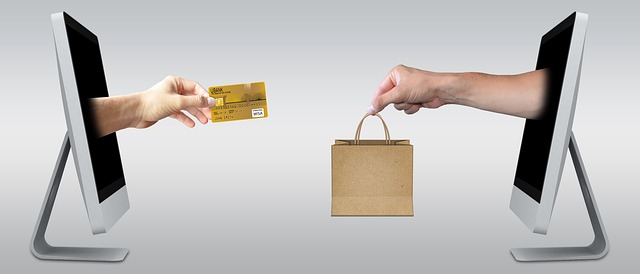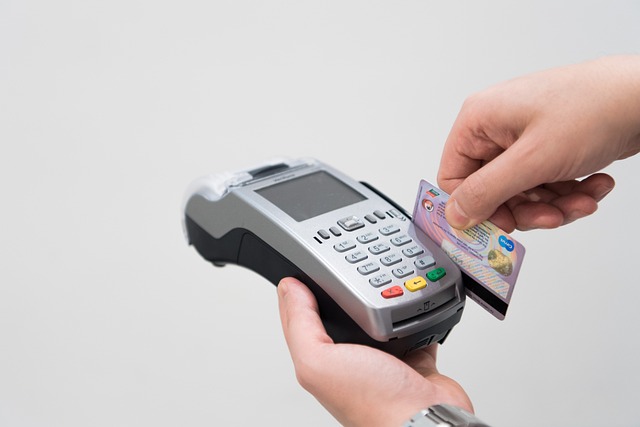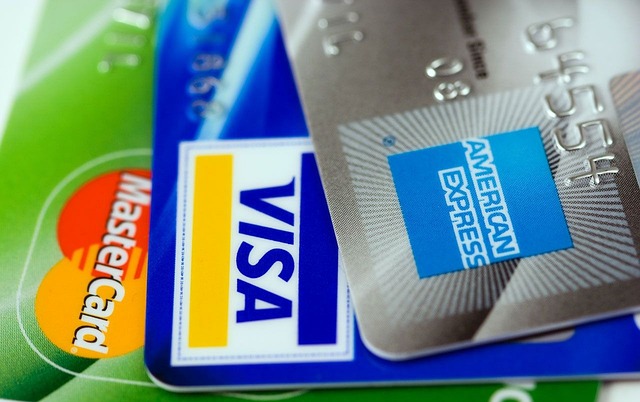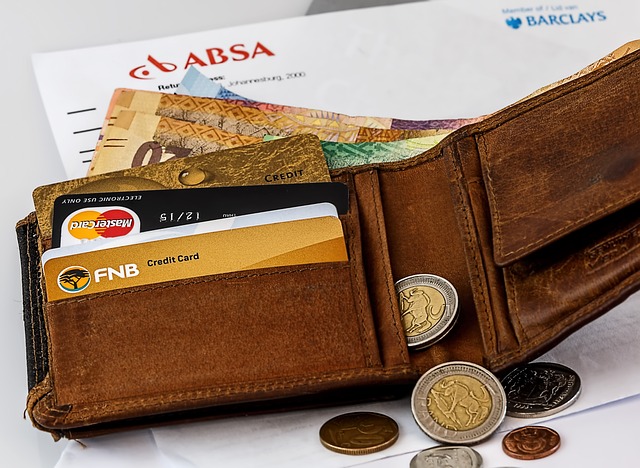No one likes to pay the annual fees of a credit card. People try their best to get away with not paying credit card fees. $0 annual fees credit cards offer some of the best rewards to the user with the perk of no annual fee.
Our list of some of the best credit cards with $0 annual fees
- Rewards Credit Card – Chase Freedom Flex Credit Card
- Travel Credit Card – Travel Rewards from Bank of America
- Student Credit Card – CapitalOne SavorOne Rewards Card
- Best Credit Card for People with Fair Credit – CapitalOne Platinum Mastercard
- Secured Credit Card – DiscoverIt Secured Credit Card
- Credit Cards with 0% APR offer – Citi Simplicity Credit Card
- Credit Card for Rent Payments – Bilt Mastercard Credit Card
- Business Credit Card – Business Advantage Customized Cash Rewards Credit card
Best Rewards Credit Card – Chase Freedom Flex Credit Card

Fees: Chase Freedom Flex credit cards charge $0 in joining and annual fees
Intro Rewards: This credit card offers a $200 bonus on a spend of $500 in the first three months of the card approval. It also offers a 0% introductory APR for 15 months on balance transfers and purchases.
Rewards: Freedom Flex offers 5% cash back on purchases from grocery stores, gas stations, and select online merchants. Further, it also offers 5% cash back on travel purchased through Chase Ultimate Rewards.
In a nutshell: Chase Freedom Flex Card offers excellent rewards on everyday purchases categories. For example, groceries, gas, and online merchants. Though, it also offers 5% cash back on travel through Chase Ultimate Rewards. This card also offers a 3% cash back on dining at restaurants and drugstore purchases. For all the other purchases, there is a cashback of 1%.
Cash back never expires on this card. This card also offers Zero Liability protection and purchase protection. Further, other additional offers and benefits are available from Mastercard.
Travel Rewards from Bank of America
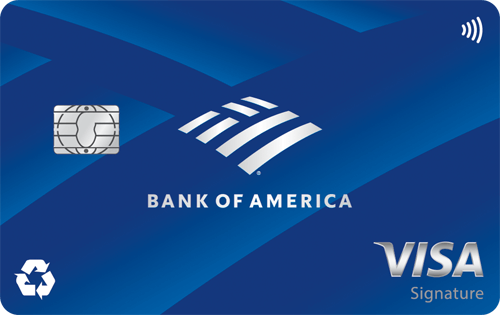
Fees: $0 in Annual fees, a 3% fee on the balance transfer, and $0 foreign transaction fees
APR: 0% APR offers for 18 months
Rewards: Customers can earn 25,000 bonus points and a $250 travel or dining statement credit value. In order to, qualify for this offer they have to spend at least $1,000 in the first 3 months of opening the new card account.
In a nutshell: This credit card also offers excellent travel rewards with 3 points earned for every $2 spent on purchases. Customers get the flexibility to redeem points for a statement credit. They can also pay for travel and dining purchases made on the card through rewards. Further, there are no end dates of the points expiry on this card and there are no blackout dates.
Additionally, existing Bank of America customers receive higher bonus rewards. Bonus rewards depend on their Preferred Rewards tier with the Bank. For example, a preferred customer gets more points.
Best Credit Card for People with Fair Credit – CapitalOne Platinum Mastercard
Fees: This credit card is available with $0 in annual fees. It also offers $0 foreign transaction fees.
Joining Rewards: This credit card doesn’t offer any joining rewards.
Rewards: Mastercard offers $0 Fraud Liability if the card is either lost or stolen. Capital One has a tool to monitor the credit profile of a user. Card members get unlimited access to their credit score CreditWise from Capital One.
In a Nutshell: This is one of the best credit cards for members with Fair credit. This card automatically increases the credit limit of the user over time. They can consider increasing the credit limit starting in as little as 6 months.
CapitalOne takes into account payment history patterns to raise the limit. Finally, this is a great credit card for a starter person looking to build credit.
Capital One SavorOne Rewards for Students

Fees: This credit card charges no annual fee and no foreign transaction fee to their users.
Rewards: Card members earn unlimited 3% cash back on multiple categories. For example, the rewards are for dining, entertainment, popular streaming services, and at grocery stores. One-time $50 bonus on spend of $100 in first 3 months of card opening.
In a nutshell: Students from universities, community colleges, or other higher education institutions can apply for this card. This card helps students build their card history over time. Students receive a complimentary Uber One membership and 10% off on Uber and UberEats orders. They also receive unlimited 5% cash back on hotels and rental cars booked through Capital One Travel.
Best Secured Credit Card – DiscoverIt Secured Credit Card
Annual Fees: $0
Minimum Security: $200
In a nutshell: DiscoverIt Secured credit card requires a minimum $200 refundable deposit and offers the credit lines equivalent to the deposit. This card provides 2% cashback on fuel and restaurant and 1% cashback on other purchases. Discover also offers unlimited cashback matches for the first year.
Meanwhile, if a customer has a good payment history of six months, they release the deposit. This credit card also reports to the three major bureaus and helps build a credit score. This card offers one of the fastest six months upgrades to an unsecured credit card. Customers have to ensure a timely payment across their credit cards and on-time payment history.
Citi Simplicity Credit Card

Introduction Balance Transfer APR: 0% Intro APR for 21 months for balance transfers. Additionally, 0% intro APR for all new purchases for the first 12 months.
Regular APR after the Introductory period: Once the introductory period is over, a variable APR of 18.49% – 29.24% is charged. This APR will be on the creditworthiness of the customer.
Rewards: Citi Simplicity credit cards do not offer any rewards. This credit card is not meant to be a rewards credit card.
Fee: Citi simplicity credit card doesn’t charge any annual fees, late fees, or penalty fees.
Other Fees: Intro fees of 3% of balance transfer fees (least of $5) for the first 4 months of credit card account opening. After the Intro period, 5% of balance transfer fees (subject to $5). 3% of foreign transaction fees are applicable on foreign transactions.
Pros and Cons of this card: Citi Simplicity credit card is one of the best 0% APR credit cards. As this credit card offers a 0% introductory offer for all new purchases for 12 months. Customers can also use it for making big purchases. They can then pay the amount over a year.
Though this credit card does not offer any rewards, it offers the best balance transfer period of 21 months. Additionally, it offers 12 months of 0% introductory offer on new purchases.
Best Credit Card for Rent Payment – Bilt Mastercard Credit Card
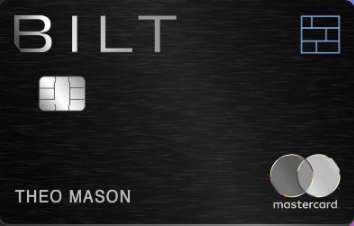
Fees: This credit card charges $0 in Annual fees and foreign currency conversion fees
APR: 20.24% – 28.24% of variable APR
Rewards: BILT MasterCard lets the cardmembers earn points on paying rent. This card provides a 1% reward for paying the rent. This credit card does not charge any transaction fees. There is a limit to the total 50,000 points which members can earn from rent.
Pros of this Card: Bilt Mastercard offers 2x points on travel purchases. Card members earn points on flights, hotels, rental cars, and cruises. In order to qualify, the travel is to be booked directly with airlines, hotels, and car rental agencies.
The card also offers the members 3x points on dining. On the rest of the purchases, the card offers 1 point. All the expenses on the 1st day of every month offer double the rewards. Members get 6x points on dining, 4x on travel, and 2x on other purchases. Further, rent payments on the 1st do not qualify for this offer.
Bilt has been ranked as one of the most valuable reward points by Bankrate. It has been ranked above American Express cards and Chase Rewards cards.
Bilt offers up to $5,000 reimbursement for a non-refundable passenger fare. If for any covered reason the trip is interrupted or canceled. Bilt also offers reimbursement for expenses incurred on delayed trips over 6 hours. Covered reasons include Weather, aircraft breakdown, or air traffic control delays. In order to, qualify for this offer the card members need to book the entire trip on the Bilt Mastercard.
This card also offers Auto Rental Collision Damage waiver for any rental car charged on the card. BILT MasterCard offers better points as a rent or travel card.
Business Advantage Customized Cash Rewards credit card
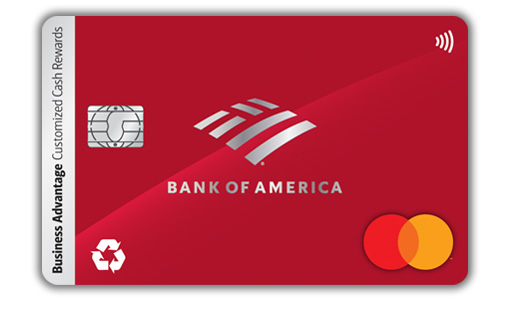
Fees: This credit card charges $0 annual fees.
APR: Introductory 0% on purchases for the first 9 billing cycles. Once, the intro APR offer ends a Variable APR that’s currently 15.99% to 25.99% will apply.
Rewards: Card members earn a $300 statement credit after they make at least $3,000 in purchases in the first 90 days of the account opening.
Pros and Cons of this card: Firstly, credit card members earn 3% cash back in the category of their choice. For instance, gas stations, office supply stores, travel, TV/telecom & wireless, computer services, or business consulting services. Next, this card offers 2% cash back on dining purchases.
Card members earn unlimited 1% cash back on all other purchases. Customers can also earn up to 75% more cash back on every purchase. But to qualify they need to have a business checking account with Bank of America. They need to also qualify for the highest Preferred Rewards for Business tier for the best rewards available.

